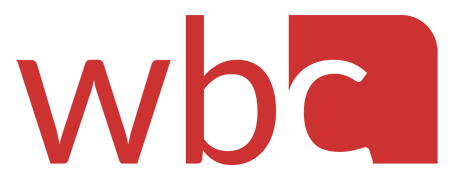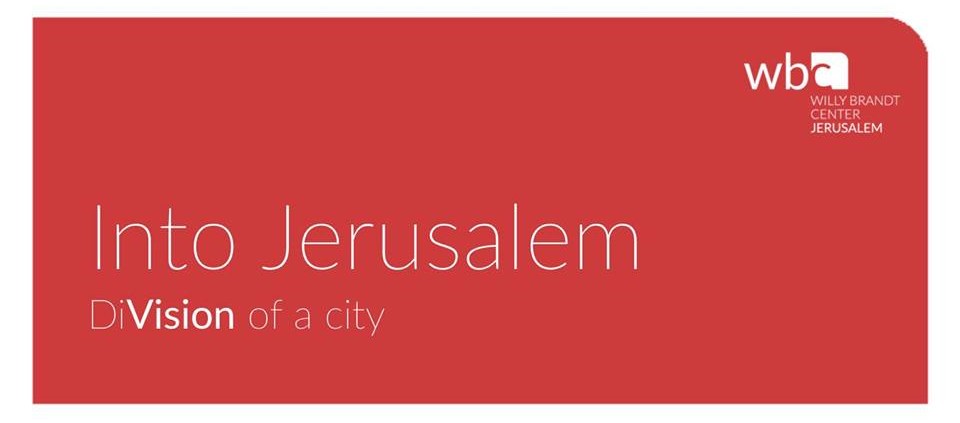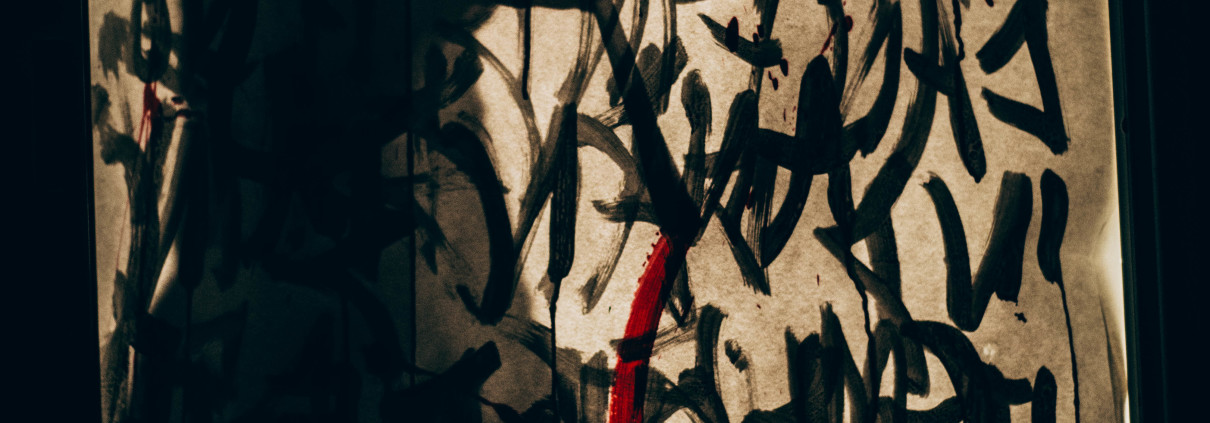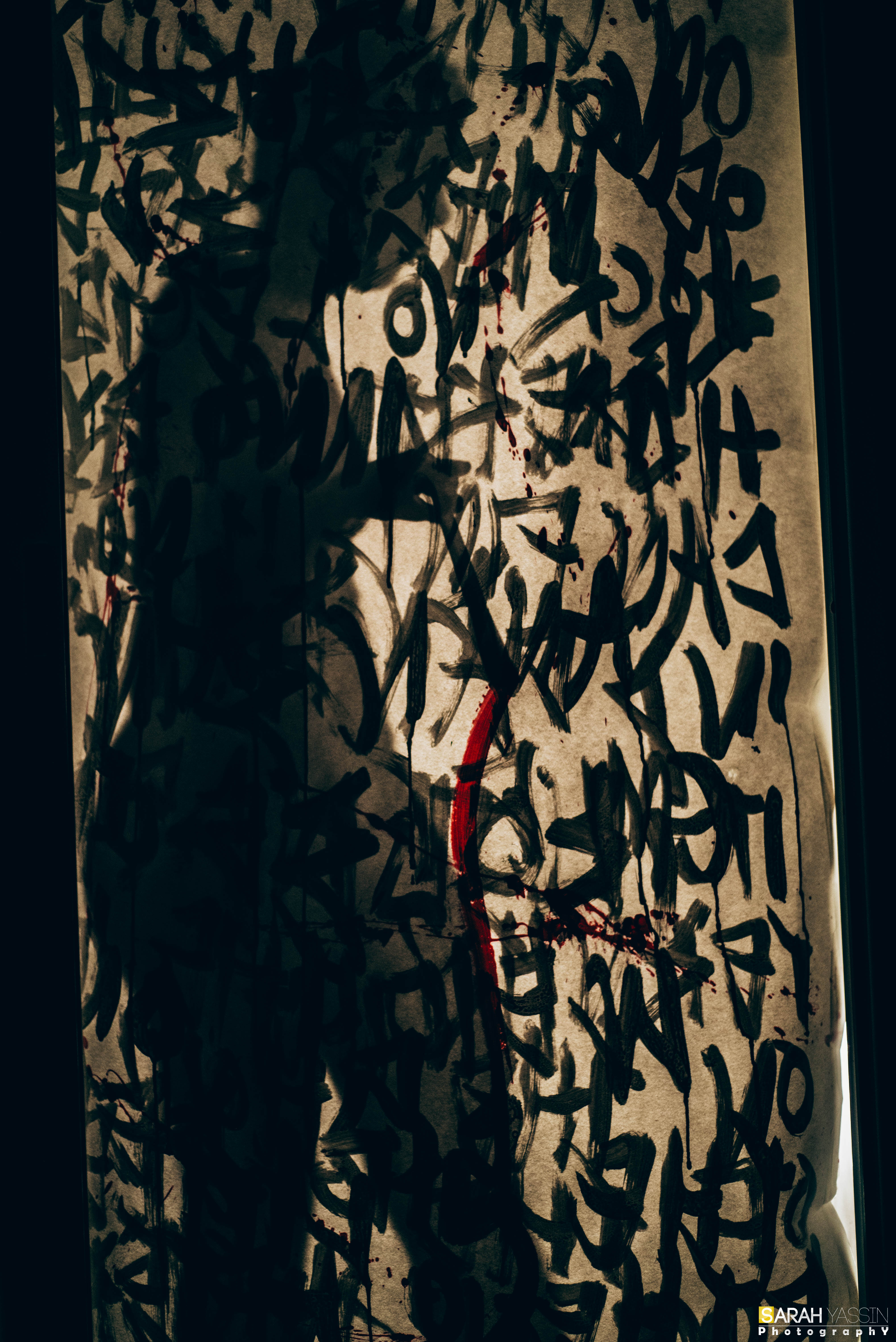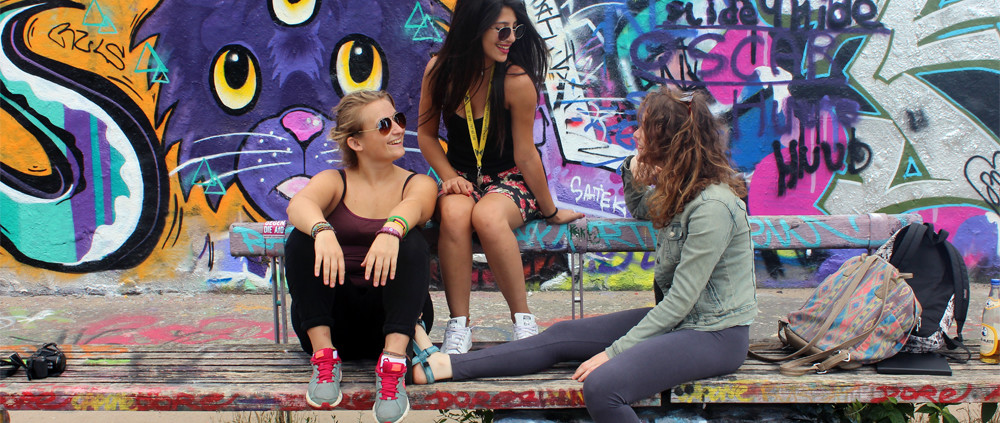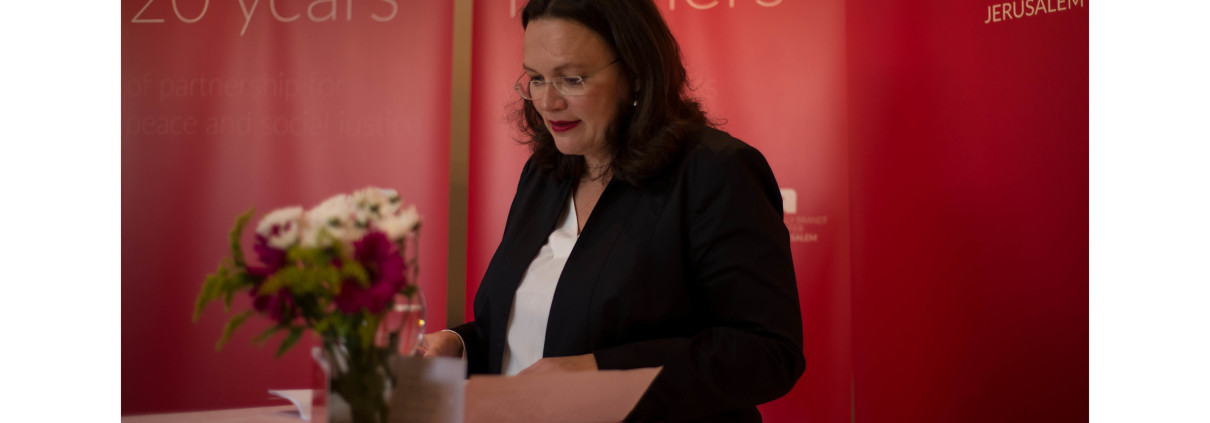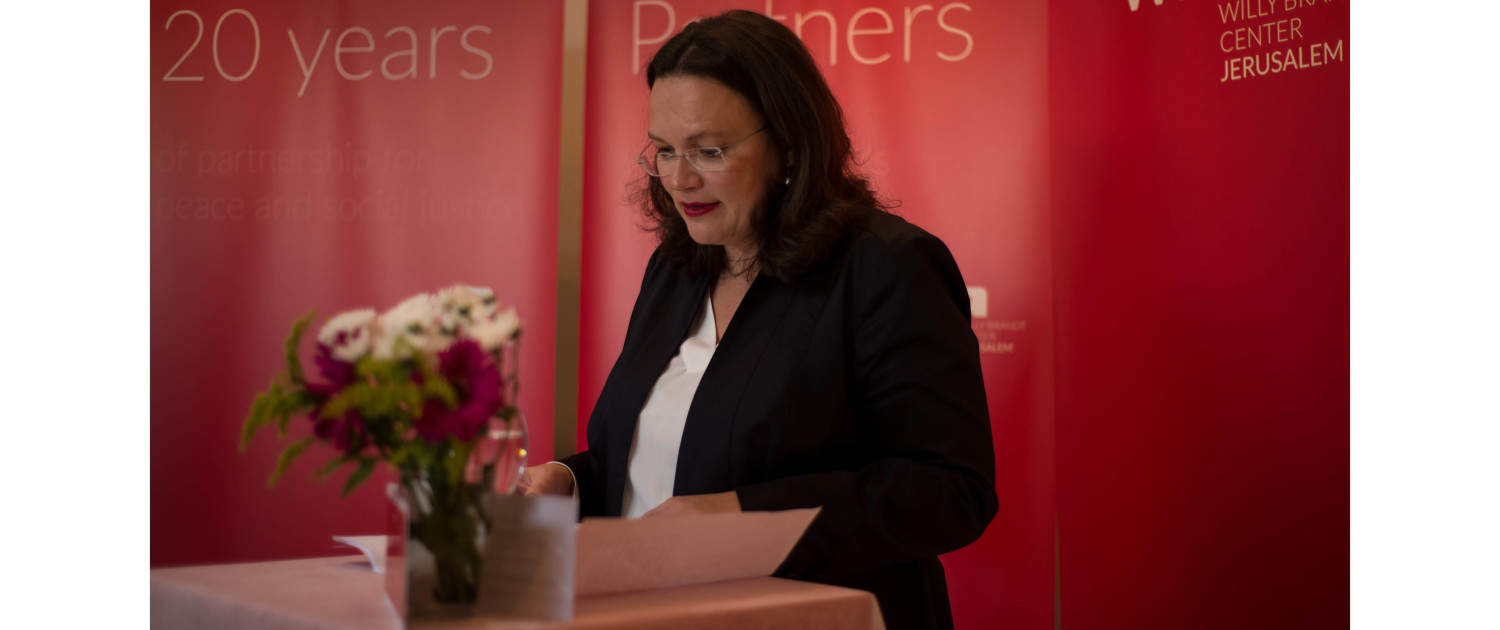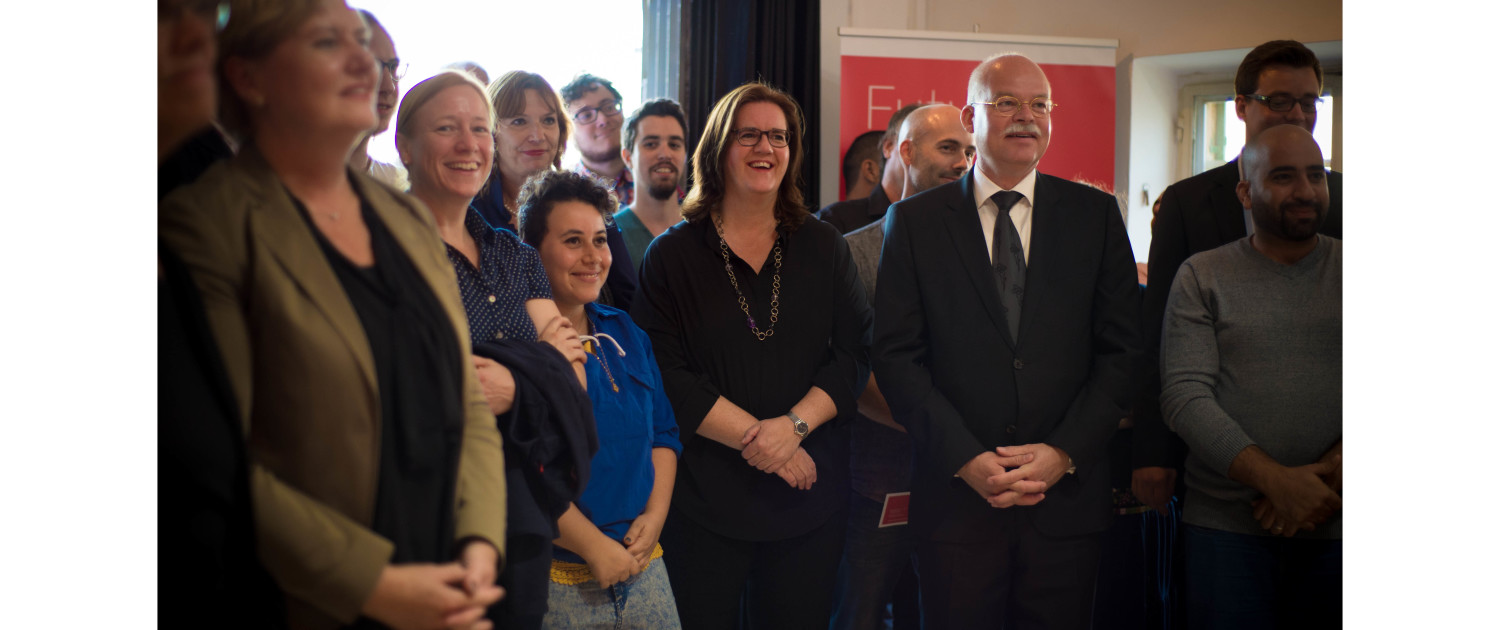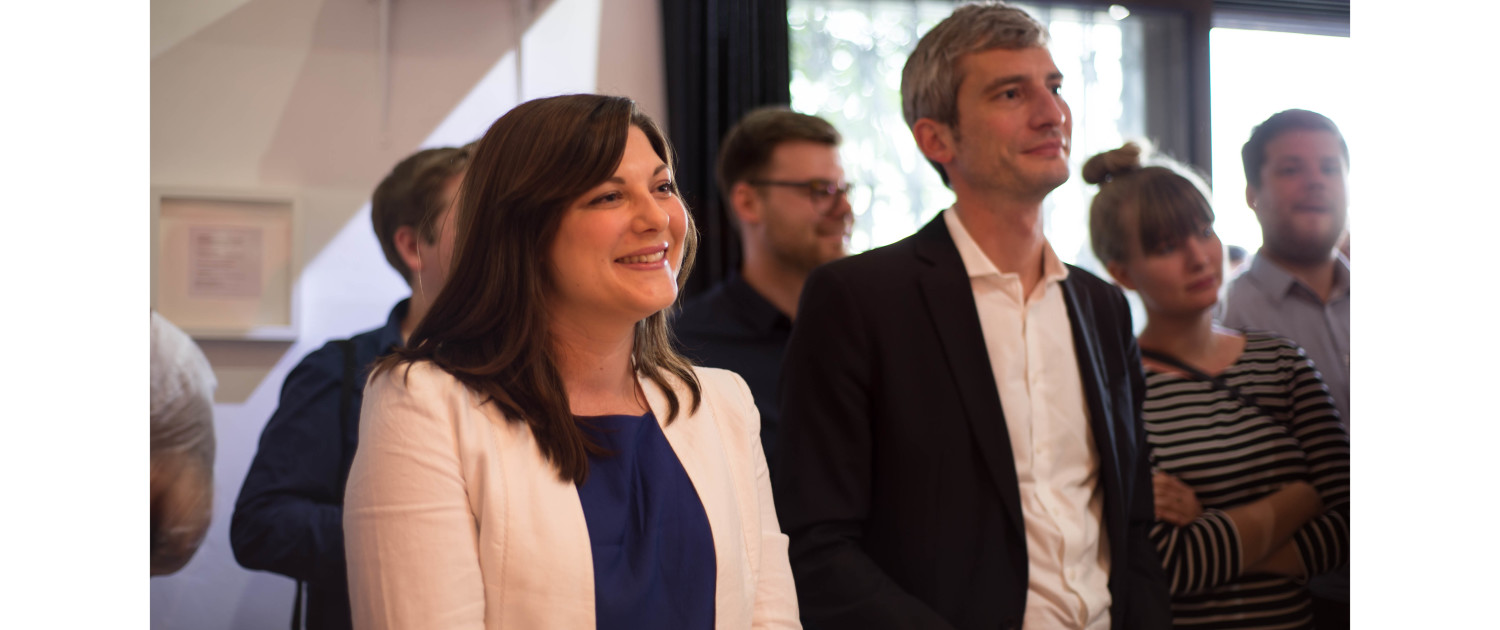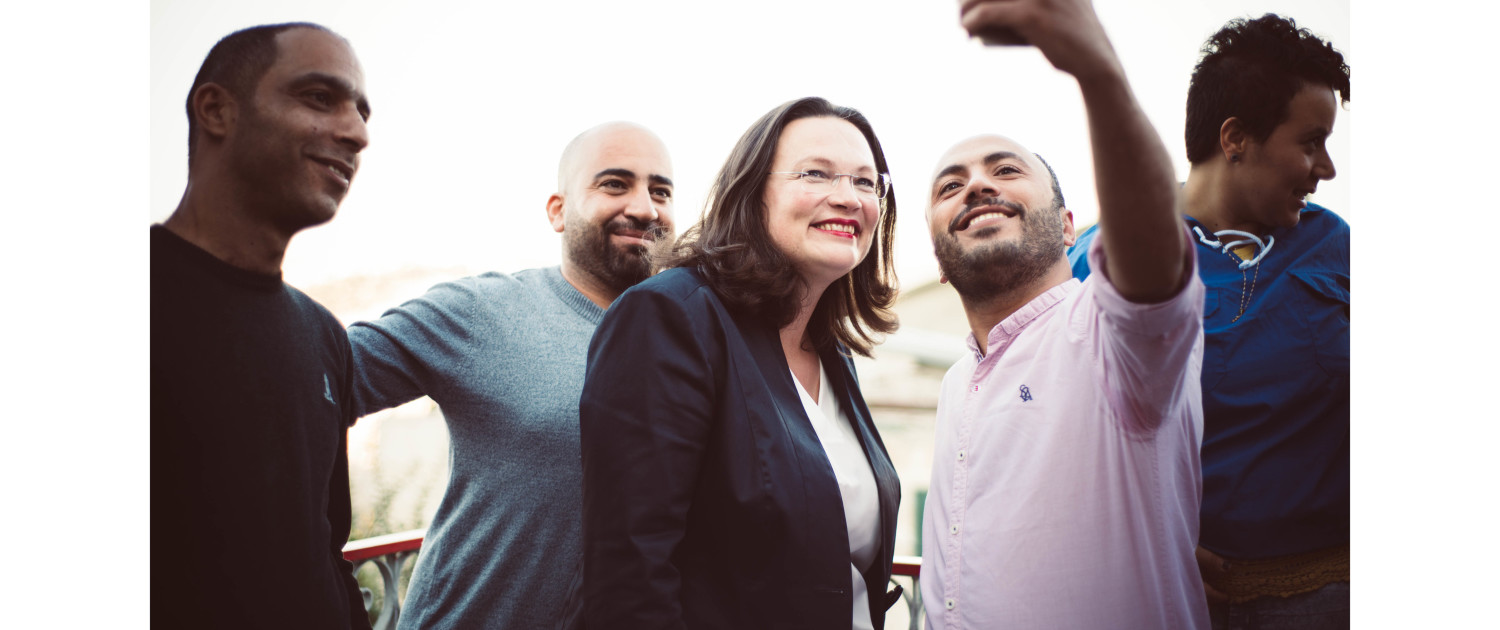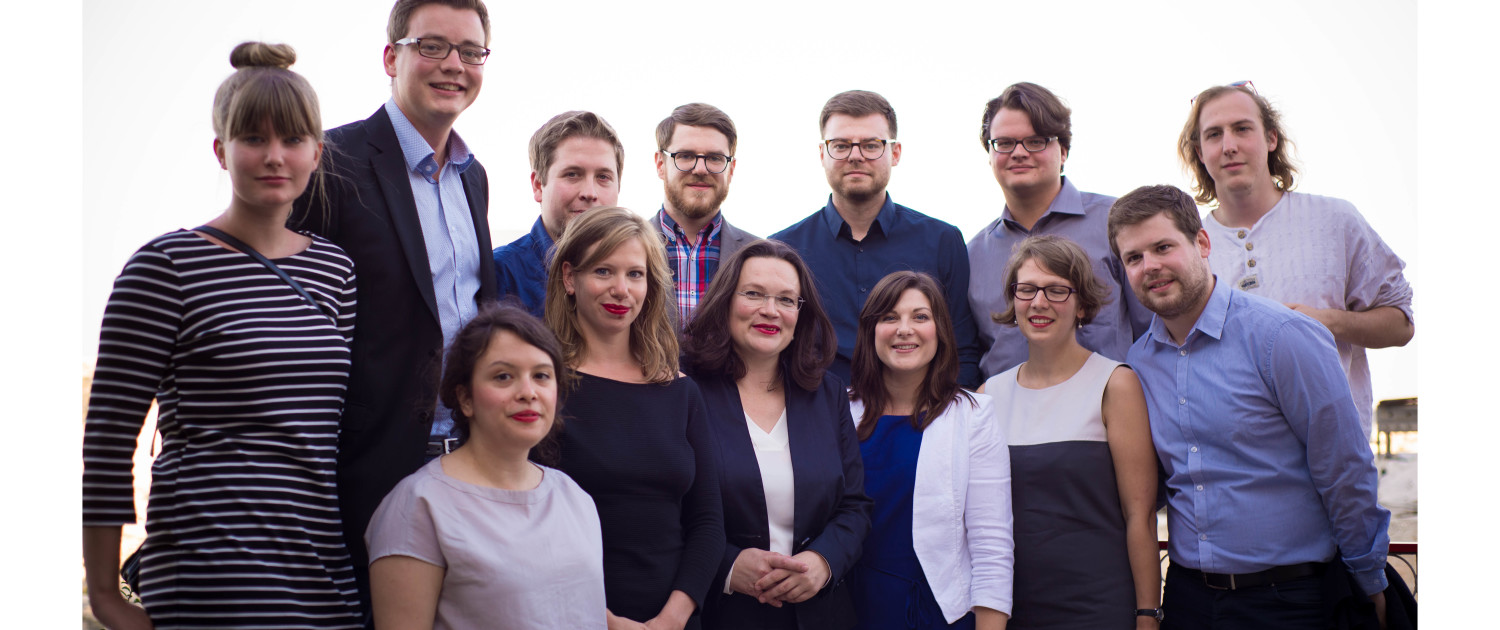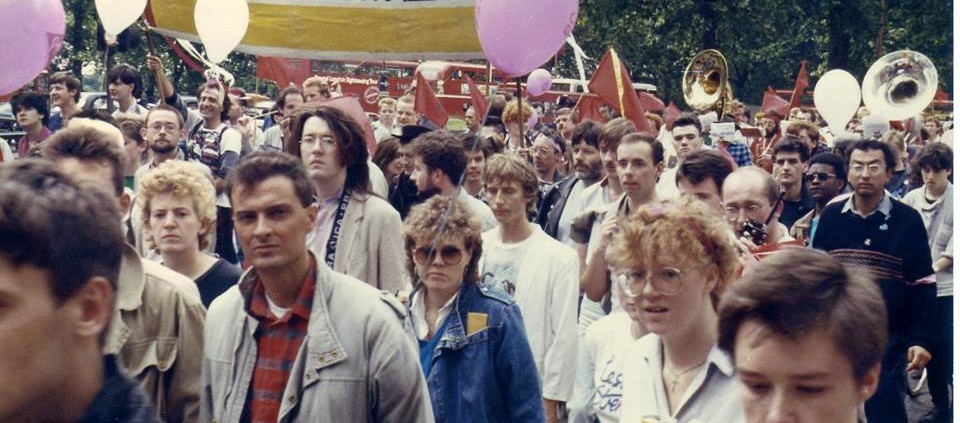Ende August beginnt Paul Stier aus Bad Schönborn in Baden-Württemberg seinen weltwärts-Freiwilligendienst im Willy Brandt Center Jerusalem. Ein Jahr lang wird der 18-jährige das Team des WBC unterstützen und die Arbeit in Jerusalem mitgestalten. Im Interview stellen wir unser neues Teammitglied vor.
Paul, in wenigen Tagen geht es los nach Jerusalem. Aufgeregt?
Klar. Es ist eben doch etwas ganz anderes als die Schulzeit, die ich vor kurzem beendet habe. Zum Glück. Ich bin gespannt, was da auf mich zukommt. Erfüllen sich meine Erwartungen und kann ich die Erwartungen erfüllen, die an mich gestellt werden? Jedenfalls freue ich mich riesig auf mein Leben in Jerusalem und die Arbeit im WBC.
Was hat dich motiviert, dich für das WBC zu bewerben? Was fasziniert dich an diesem Projekt?
Als ich mit 14 Jahren bei den Jusos aktiv geworden bin, habe ich durch Zufall über die Facebookseite der Jusos eine Stellenausschreibung für einen Freiwilligendienst im WBC entdeckt. Seitdem wusste ich – da will ich hin. Denn auch wenn der Nahost-Konflikt oftmals so festgefahren scheint – das WBC leistet einen wichtigen Beitrag, dass das nicht so bleibt. Junge Menschen aus Israel und Palästina auf Augenhöhe zusammenzubringen, halte ich für eine der wirksamsten Methoden, eine Annäherung herbeizuführen. Außerdem werden im WBC auch Themen wie etwa die soziale Gerechtigkeit oder die Gleichstellung aller Geschlechter beleuchtet, die oft zu wenig Aufmerksamkeit erfahren und dennoch von zentraler Bedeutung für die Menschen sind.
Du bist seit 2012 bei den Jusos aktiv und hast dort auch schon eine Diskussionsveranstaltung mit palästinensischen und mit israelischen jungen Menschen organisiert. Wie kam es dazu?
Als Juso-AG versuchen wir regelmäßige Diskussionsrunden zu veranstalten, bei denen wir aktuelle Themen aufgreifen und ReferentInnen oder persönlich Betroffene einladen. Im Sommer 2014 hat der letzte Gaza-Krieg ja auch in Deutschland eine hochpolarisierte Debatte ausgelöst. Plötzlich solidarisierten sich Millionen von Menschen auf Demonstrationen aber vor allem in den sozialen Netzwerken mit der einen oder der anderen Seite. Auch innerhalb unserer Juso-AG wurde diese Debatte geführt. Deshalb fand ich es naheliegend, die damals jüngste Eskalation des Nah-Ost-Konflikts auch in einer unserer Diskussionsrunden zu behandeln.
Letztendlich kamen als persönlich Betroffene nur Klassenkameraden eines unserer Mitglieder, die Angehörige im Gaza-Streifen hatten. Um dennoch für eine Ausgewogenheit zu sorgen und eine eventuelle Eskalation bei diesem hochemotionalen Thema zu verhindern, habe ich mir als damals 15-Jähriger die Hilfe von älteren Jusos und unserer damaligen Regio-Betreuerin geholt. So hatten wir die Situation dann gut im Griff und konnten auf einer sachlichen Ebene diskutieren. Hier habe ich gelernt, dass es sinnvoll ist, sich einzugestehen, wenn man Unterstützung braucht. Zum anderen habe ich während der Diskussion mit den Angehörigen von Betroffenen umso deutlicher gespürt, wie wichtig eine friedliche Lösung des Konflikts ist.
Was hast du sonst noch bei den Jusos gemacht?
Ich hatte das Glück, Teil der vergleichsweise großen und aktiven Juso-AG in Bad Schönborn in Baden-Württemberg zu sein. Wir sind ca. 15 bis 20 aktive JungsozialistInnen in einem ländlichen, konservativ geprägten Gemeindeverbund mit ca. 12000 EinwohnerInnen. Meine Arbeitsgemeinschaft stellt einen von 22 Gemeinderäten und hat mehr aktive Mitglieder als der SPD-Ortsverein. Das bedeutet, dass wir hauptsächlich ein kommunalpolitischer Akteur sind und Themen wie die Schaffung von öffentlichen WLAN-Hotspots, sozialer Wohnungsbau oder die Integration von Geflüchteten auf unserer Agenda stehen.
Ich war zwei Jahre lang Pressesprecher unserer Arbeitsgemeinschaft. Das bedeutet ich habe über unsere Veranstaltungen und Positionen in der Presse berichtet, habe unsere Facebookseite und Website betreut und wirkte an der Konzeption und Durchführung unserer politischen Kampagnen, der Neumitglieder-Kampagnen und der Wahlkämpfe mit. Deshalb freut es mich natürlich, dass die Betreuung der Facebookseite und der Website des WBCs unter anderem zu meine Aufgaben als Freiwilliger gehören wird.
In unserer Bildungskooperation haben wir mit HaShomer HaTzair (Junge Wächter) und der HaNoar HaOved VeHaLomed (Arbeitende und Lernende Jugend) zwei Partner, die ähnlich wie Pfadfinder, bei denen du aktiv bist, viele Sommerlager und Gruppenwanderungen veranstalten. Lässt das dein Pfadfinderherz höherschlagen?
Die Wanderstiefel sind schon im Koffer. Als Leiter einer Pfadfindergruppe in Deutschland freue ich mich natürlich, die sozialistischen Jugendbewegungen kennenzulernen, die auch Pfadfindermethoden anwenden. Ich hoffe, ich kann von dort etwas in meinen eigenen Verband hineintragen.
Obwohl es sicherlich Unterschiede zwischen meiner katholischen Organisation, der Deutschen Pfadfinderschaft St. Georg, und den sozialistischen und zionistischen Organisationen gibt, teilen wir dieselben Grundwerte: Solidarität, Frieden, Gerechtigkeit, Freiheit und Toleranz spielen eine große Rolle im Werteverständnis eineR PfadfinderIn und eineR SozialistIn.
Worauf freust du dich im kommenden Jahr am meisten?
Gerade freue ich mich einfach nur darauf, dass es jetzt endlich losgeht.
Interview geführt von Tobias Pietsch
Foto: Marcel Yilmaz
